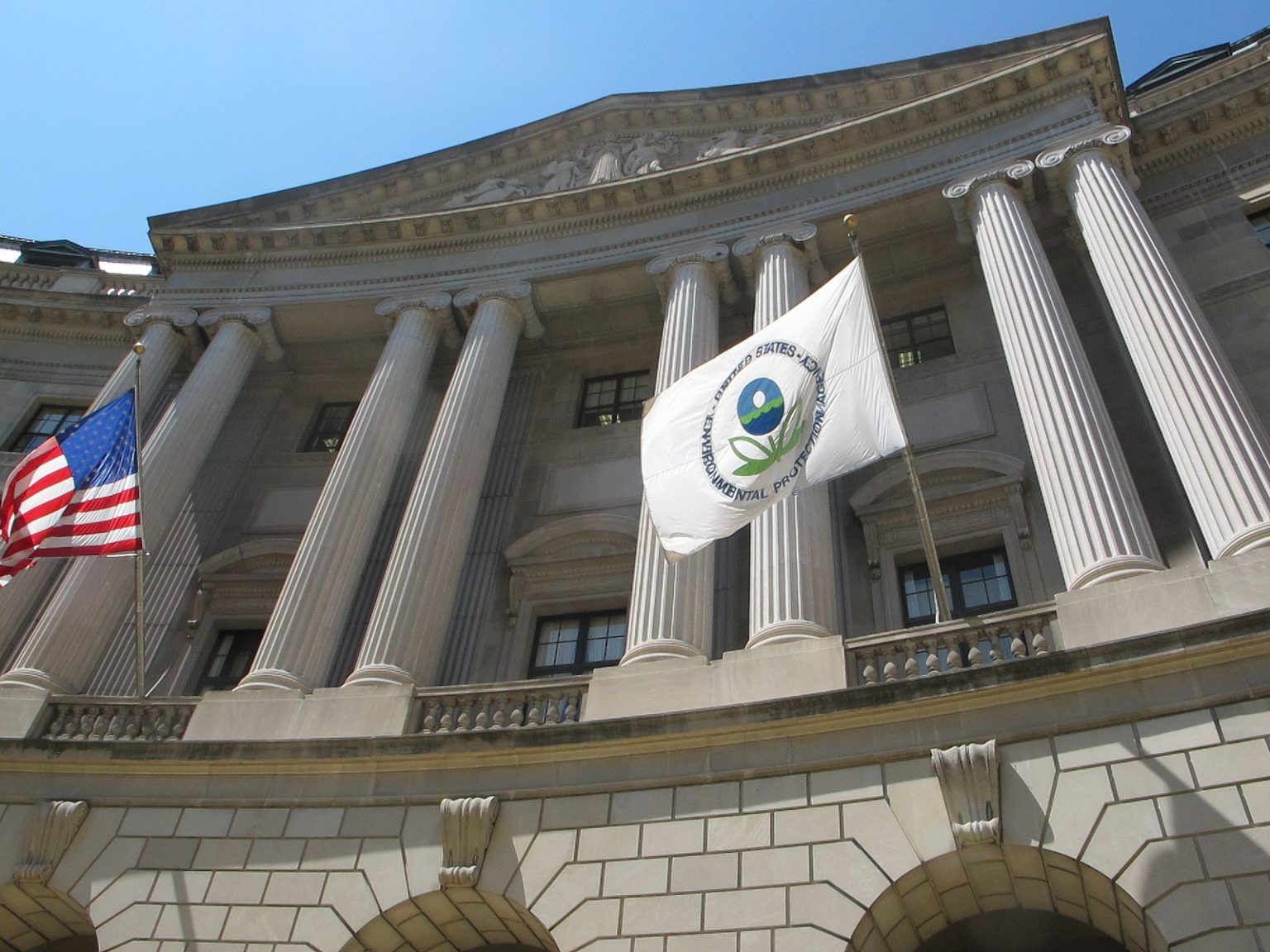On Feb. 3, Florida Republican Rep. Matt Gaetz turned heads when he introduced a bill to “completely abolish” the U.S. Environmental Protection Agency (EPA).
“Today, the American people are drowning in rules and regulations promulgated by unelected bureaucrats,” Gaetz told fellow GOP lawmakers in an email reported by the Huffington Post, “and the Environmental Protection Agency has become an extraordinary offender.”
Rep. Gaetz’s bill came the day after a Senate committee voted in favor of confirming Scott Pruitt, the fossil fuel-friendly attorney general of Oklahoma who has sued the EPA 14 times, to head the agency.
And like Pruitt, Rep. Gaetz and his three fellow sponsors of H.R. 861 have all benefited from campaign donations from oil, gas, and coal companies and large electric utilities.
The four GOP representatives have raked in campaign cash from some of the biggest corporations peddling fossil fuels, including Koch Industries, Duke Energy, Chevron, and ExxonMobil. What’s more, an independent political spending group funded by an oil and gas company stepped in with ad buys to aid in Gaetz’s recent U.S. House race.
Over their careers, these legislators appear to have responded in kind, pushing legislation favored by the industries reliant on fossil fuels. Here’s who they are, how much they’ve received from the industry, and what they’ve been up to in recent years.
Rep. Matt Gaetz (R-FL)
Since 2010, Gaetz’s political campaigns have received $28,000 directly from fossil fuel companies and energy utilities, according to data compiled by the National Institute on Money in State Politics. These donors include the corporate PACs of utilities including Duke Energy, Gulf Power, NextEra Energy, Progress Energy, Southern Company, and Teco Energy; oil and gas companies Chevron, Exxon, and Koch Industries; and individual donors including the CEO of Gulf Power and the CEO of Global Industries and Dore Energy.
In 2016, as Gaetz ran for his first term in Congress, a super PAC supporting him received a $100,000 donation from Harness Oil and Gas, a Texas-based company reportedly run by family friends. This super PAC, North Florida Neighbors, spent over $460,000, the bulk of its total expenditures during that election cycle, supporting Gaetz.
As a Florida state legislator, Gaetz successfully fought the requirement that gas sold in the state contain a minimum percentage of ethanol, something he called “a feel-good attempt to use alternative energy.”
Rep. Thomas Massie (R-KY)
Massie, a U.S. representative since 2012, was first elected with the backing of the Tea Party group FreedomWorks, which heavily opposes environmental regulations and regularly questions whether humans are affecting the climate.
In his three congressional campaigns, Massie took in nearly $155,000 from companies working in various parts of the oil, gas, and coal industries, including Alpha Natural Resources, Chevron, Duke Energy, Exxon, Halliburton, and Koch Industries, as well as from CSX Corporation, a transportation company that operates trains carrying coal, oil, natural gas, and frac sand, an essential material used in shale drilling.
From his position in Congress, Massie has attacked and attempted to weaken the EPA repeatedly. He co-sponsored a 2016 bill to shift how the EPA analyzes greenhouse gas emissions in favor of fossil fuel companies — a bill lobbied for by Marathon Petroleum (which has given him $20,000) and the U.S. Chamber of Commerce (which raises doubt about human-caused climate change). Before that, he co-sponsored a 2015 resolution weakening an EPA rule under the Clean Air Act and a 2014 bill lowering EPA ambient air quality standards.
The Liberty for All Super PAC, funded mostly by the young, Texas-based millionaire investor John Ramsey, spent nearly $630,000 backing Massie for Congress in 2012. Unsurprisingly, Ramsey has “oil and gas ventures,” according to his biography on the super PAC’s website.
Rep. Barry Loudermilk (R-GA)
Loudermilk’s state and federal campaigns have received over $60,000 from fossil fuel companies and trade associations, including Duke Energy, Exxon, Georgia Mining Association, Georgia Power, Koch Industries, and Valero Energy.
In Congress, Loudermilk has co-sponsored several energy-related bills: a nuclear energy bill for which Duke Energy and Southern Company lobbied; a repeal of the U.S. crude oil export ban, which numerous fossil fuel companies, including BP, Chevron, Exxon, Marathon Oil, and ConocoPhillips, lobbied in support of; and a bill challenging EPA greenhouse gas regulations, another piece of legislation oil and gas companies and utilities favored.
Both Loudermilk and Massie sit on the House Committee on Science, Space and Technology — which has jurisdiction over the EPA, the Department of Energy, and the National Oceanic and Atmospheric Administration (NOAA) — and its subcommittee on oversight, key positions that would naturally attract the attention of fossil fuel companies.
Loudermilk’s 2015 financial disclosure statement reveals that he received state funding to attend and speak at a “conservative policy summit” hosted by the climate change-denying Heritage Foundation, which has reportedly received $780,000 from ExxonMobil and nearly $6 million from Koch family foundations. Another speaker at the conference was Myron Ebell, the notorious climate change denier who led Trump’s EPA transition team. Ebell crafted Trump’s plan to hobble the EPA.
As a Georgia state senator, Loudermilk was on the communications and technology task force of the American Legislative Exchange Council (ALEC), a conservative bill mill that unites state legislators and big business representatives. ALEC has a history of producing templates for anti-environmental legislation involving climate change denial, promoting gas pipelines, and attacking residential solar energy. In addition, ALEC is funded by many of the same fossil fuel corporations that donated to the campaigns of Loudermilk and his fellow legislators hoping to abolish the EPA: Chevron, CSX, Dominion, Duke Energy, Exxon, and Koch Industries, to name a few.
Rep. Steven Palazzo (R-MS)
PACs and employees of companies in the energy and natural resources sector have given over $265,000 to Palazzo’s four federal election campaigns, which includes $168,000 from oil and gas companies. The fourth-largest donor is Mississippi Power, an electric utility owned by Southern Company that burns coal and natural gas and has given Palazzo’s campaigns over $34,000. Palazzo has also taken in $24,000 from Chevron, nearly $20,000 from Koch Industries, and $19,000 from General Electric.
In 2015 Palazzo voted to oppose an EPA rule that increased emissions standards for coal-fired power plants, and the year prior, he voted to halt defense spending on climate change initiatives and cut all funding for the Department of Energy’s energy efficiency and renewable energy program. In previous years, Palazzo voted to speed up natural gas pipeline permits, allow state laws to supersede federal EPA laws regarding hydraulic fracturing (“fracking”), and cut funding to the EPA, among other measures.
While serving as Mississippi state representative, Palazzo was also a member of ALEC.
Rep. Gaetz’s office declined to offer comment, while the other three representatives did not respond to requests for comment.
While their bill to kill the EPA has been receiving little support from either political party and is unlikely to pass, its mere existence marks the extent to which fossil fuel funding has the potential to influence elected officials. This bill joins an effort already underway among the GOP-controlled House, Senate, and White House to roll back regulations to protect the environment and public health.
Congressional observers likely can expect to see more of the same from these four representatives in the future.
Main image: U.S. Environmental Protection Agency Credit: Natural Resources Defense Council (NRDC), CC BY 2.0
Subscribe to our newsletter
Stay up to date with DeSmog news and alerts






